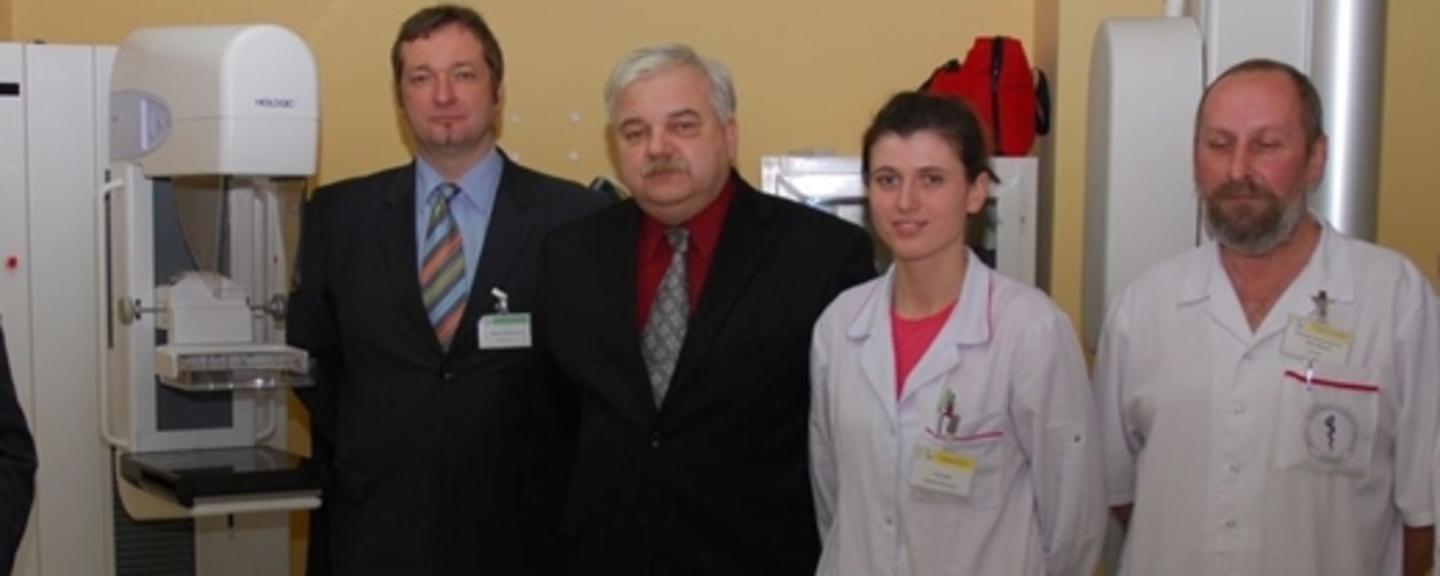The statistics show that the average life expectancy in Poland is lower and mortality of infants and mothers is higher than in the majority of EU member states.
By improving access to and quality of care in the period around birth, the Independent Public Health Care Centre in Staszów aims to reduce the mortality of newborns due to pregnancy complications and protect the health of pregnant mothers.
Modern equipment in place
The provincial public hospital, which has 300 beds for a population of approximately 75,000, is currently undergoing a modernisation process with renovation of wards and building of a new wing.
With the support form EEA Grants, the hospital has purchased modern ultrasound equipment and equipment for mammography, operating procedures have been established and staff have been trained. The hospital is also running a comprehensive information campaign which involves distribution of posters and brochures through local doctors and health centres.
Reaching younger women
As a result of the project, all pregnant women that belong to the hospital will be offered ultrasound examinations. This is a new offer for pregnant women in the province, and so far 50 women have been examined. In addition, approximately 150 women have been examined for cervical cancer. The mammography component is yet to start.
Both the cervical cancer and mammography examinations aim at reaching women between 25 and 50 years, which is the age group where the risk of cancer is highest. Older women are covered through national programs. Education is also an important aspect of the project, as women in the target group get to know more about the risks and are made aware of the importance of regular testing.
Photo credit: Royal Norwegian Embassy, Warsaw.
